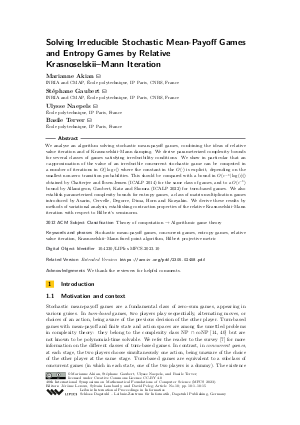LIPIcs.MFCS.2023.10.pdf
- Filesize: 0.75 MB
- 15 pages

 Creative Commons Attribution 4.0 International license
Creative Commons Attribution 4.0 International license








































Feedback for Dagstuhl Publishing